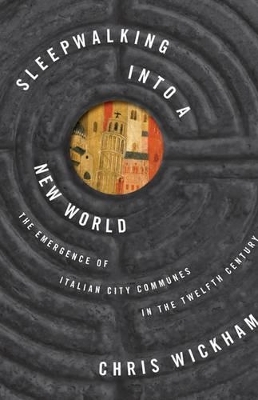
Sleepwalking into a New World
The Emergence of Italian City Communes in the Twelfth Century
Seiten
2015
Princeton University Press (Verlag)
978-0-691-14828-1 (ISBN)
Princeton University Press (Verlag)
978-0-691-14828-1 (ISBN)
Amid the disintegration of the Kingdom of Italy in the eleventh and twelfth centuries, a new form of collective government--the commune--arose in the cities of northern and central Italy. Sleepwalking into a New World takes a bold new look at how these autonomous city-states came about, and fundamentally alters our understanding of one of the most important political and cultural innovations of the medieval world. Chris Wickham provides richly textured portraits of three cities--Milan, Pisa, and Rome--and sets them against a vibrant backcloth of other towns. He argues that, in all but a few cases, the elites of these cities and towns developed one of the first nonmonarchical forms of government in medieval Europe, unaware that they were creating something altogether new. Wickham makes clear that the Italian city commune was by no means a democracy in the modern sense, but that it was so novel that outsiders did not know what to make of it. He describes how, as the old order unraveled, the communes emerged, governed by consular elites "chosen by the people," and subject to neither emperor nor king.
They regularly fought each other, yet they grew organized and confident enough to ally together to defeat Frederick Barbarossa, the German emperor, at the Battle of Legnano in 1176. Sleepwalking into a New World reveals how the development of the autonomous city-state took place, which would in the end make possible the robust civic culture of the Renaissance.
They regularly fought each other, yet they grew organized and confident enough to ally together to defeat Frederick Barbarossa, the German emperor, at the Battle of Legnano in 1176. Sleepwalking into a New World reveals how the development of the autonomous city-state took place, which would in the end make possible the robust civic culture of the Renaissance.
Chris Wickham is the Chichele Professor of Medieval History at the University of Oxford. His many books include The Inheritance of Rome: A History of Europe from 400 to 1000, Framing the Early Middle Ages, and Courts and Conflict in Twelfth-Century Tuscany.
List of Maps vii Acknowledgements ix A Note on Personal Names xi Chapter 1 COMMUNES 1 Chapter 2 MILAN 21 Chapter 3 PISA 67 Chapter 4 ROME 119 Chapter 5 ITALY 161 Notes 207 Bibliography 253 Index 283
| Reihe/Serie | The Lawrence Stone Lectures |
|---|---|
| Zusatzinfo | 7 Maps |
| Verlagsort | New Jersey |
| Sprache | englisch |
| Maße | 140 x 216 mm |
| Gewicht | 454 g |
| Themenwelt | Sonstiges ► Geschenkbücher |
| Geschichte ► Allgemeine Geschichte ► Mittelalter | |
| Geisteswissenschaften ► Geschichte ► Regional- / Ländergeschichte | |
| ISBN-10 | 0-691-14828-7 / 0691148287 |
| ISBN-13 | 978-0-691-14828-1 / 9780691148281 |
| Zustand | Neuware |
| Haben Sie eine Frage zum Produkt? |
Mehr entdecken
aus dem Bereich
aus dem Bereich
eine neue Geschichte des Mittelalters
Buch | Hardcover (2023)
C.H.Beck (Verlag)
38,00 €


